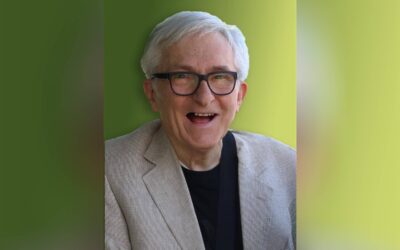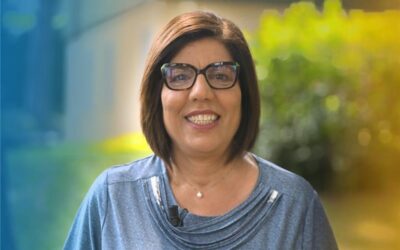Interdependence Day “Individuals, peoples and states for a united world”
 Faced with the real danger of conflict between different civilisations, the idea of positive interdependence emerged as a way of facing up to the challenge offered by the post-global society, that of “knowing how to live together”. In order to go beyond the vision of an interdependence that is merely economic or financial, positive interdependence promotes interdependence between individuals, peoples and states for a future based on peace, dialogue, social justice and universal brotherhood. The initiative On 11 and 12 September the second Interdependence Day will be held in Rome. The first one took place on 12 September 2003 in Philadelphia, on the initiative of Benjamin Barber of the University of Maryland (USA), founder of Civ-World. The choice of date was not just by chance – it is the day after the terrorist attack on the Twin Towers and the Pentagon. This seemed like the most appropriate date for the Civ-World project, given the new need for interdependence that these attacks so tragically provoked. The importance of this initiative is that it reinforces the idea of positive interdependence as a way of facing up to the challenge of “knowing how to live together”, as essential for helping human beings to live together peacefully, to bring to the world of politics and to introduce into our various cultures. Interdependence is the global condition in which each one of us, singly or as a group, lives, works, breathes and thinks. The more we become aware of this, the more rapid will be the progress of this positive attitude in humanity. Faced with a negative interdependence organised by crime, by terrorism or by an interdependence that is merely economic or financial, conflict between different civilisations is inevitable. The quest for positive interdependence between peoples and nations will contribute to the maturation of a culture of peace, dialogue, solidarity and universal brotherhood. The aim of the meeting is to promote the idea of positive interdependence between individuals, peoples and states, working together to identify common projects at local, national, European and international levels. The promoters of the congress, together with the Rome City Council and Benjamin Barber’s Civ-World Movement are : ACLI, Legambiente, the Movement for Unity in Politics, the Focolare Movement and the St Egidio Community. These very different organisations will come together, each with its own particular gifts, to discover how to form “global citizens” capable of building a “global civic society” in which reciprocity and genuine dialogue between different peoples and cultures will be the norm. There are two main parts to the programme: � An evening of commemoration of the victims of terrorism and of all wars. It will also include dialogue between the great monotheistic religions (Piazza del Campidoglio) � A morning session in which the concept of interdependence is investigated, led by important international figures from various cultural backgrounds (“Auditorium di Roma”).
Faced with the real danger of conflict between different civilisations, the idea of positive interdependence emerged as a way of facing up to the challenge offered by the post-global society, that of “knowing how to live together”. In order to go beyond the vision of an interdependence that is merely economic or financial, positive interdependence promotes interdependence between individuals, peoples and states for a future based on peace, dialogue, social justice and universal brotherhood. The initiative On 11 and 12 September the second Interdependence Day will be held in Rome. The first one took place on 12 September 2003 in Philadelphia, on the initiative of Benjamin Barber of the University of Maryland (USA), founder of Civ-World. The choice of date was not just by chance – it is the day after the terrorist attack on the Twin Towers and the Pentagon. This seemed like the most appropriate date for the Civ-World project, given the new need for interdependence that these attacks so tragically provoked. The importance of this initiative is that it reinforces the idea of positive interdependence as a way of facing up to the challenge of “knowing how to live together”, as essential for helping human beings to live together peacefully, to bring to the world of politics and to introduce into our various cultures. Interdependence is the global condition in which each one of us, singly or as a group, lives, works, breathes and thinks. The more we become aware of this, the more rapid will be the progress of this positive attitude in humanity. Faced with a negative interdependence organised by crime, by terrorism or by an interdependence that is merely economic or financial, conflict between different civilisations is inevitable. The quest for positive interdependence between peoples and nations will contribute to the maturation of a culture of peace, dialogue, solidarity and universal brotherhood. The aim of the meeting is to promote the idea of positive interdependence between individuals, peoples and states, working together to identify common projects at local, national, European and international levels. The promoters of the congress, together with the Rome City Council and Benjamin Barber’s Civ-World Movement are : ACLI, Legambiente, the Movement for Unity in Politics, the Focolare Movement and the St Egidio Community. These very different organisations will come together, each with its own particular gifts, to discover how to form “global citizens” capable of building a “global civic society” in which reciprocity and genuine dialogue between different peoples and cultures will be the norm. There are two main parts to the programme: � An evening of commemoration of the victims of terrorism and of all wars. It will also include dialogue between the great monotheistic religions (Piazza del Campidoglio) � A morning session in which the concept of interdependence is investigated, led by important international figures from various cultural backgrounds (“Auditorium di Roma”).




0 Comments